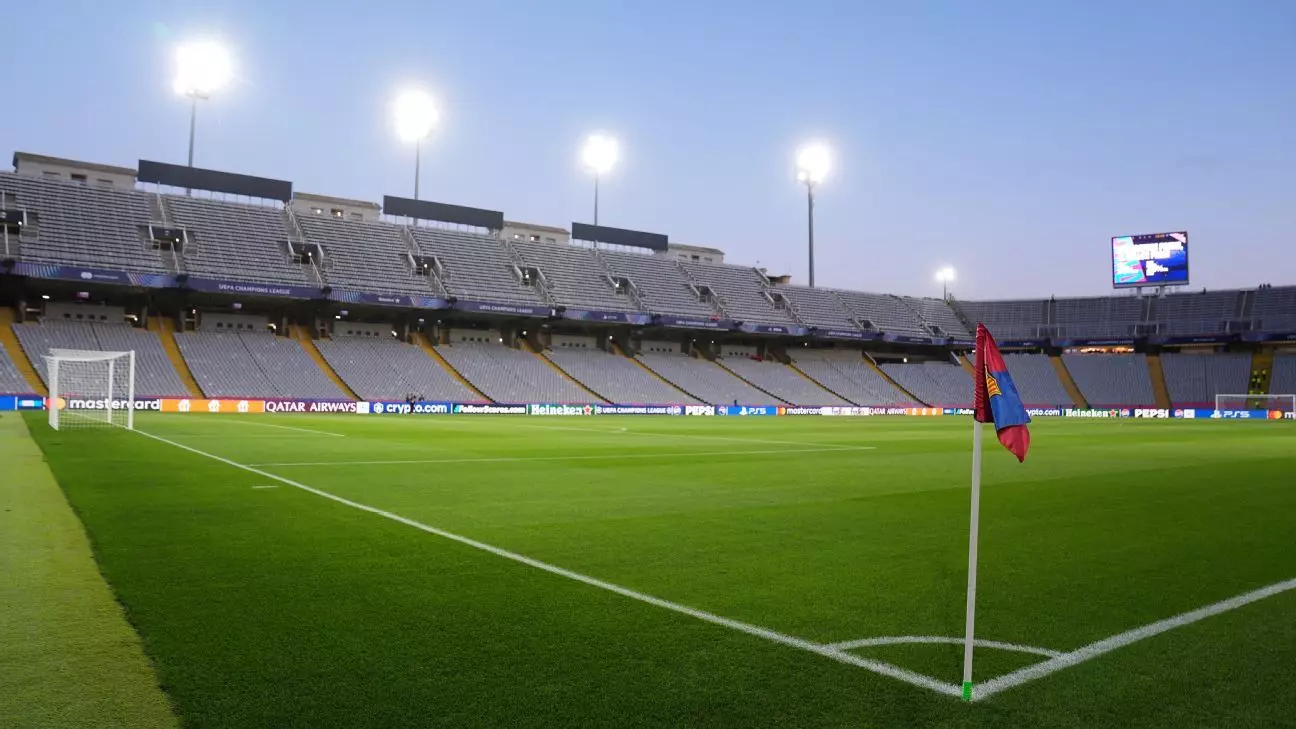FC Barcelona is undergoing a notable shift in its relationship with fan groups, particularly concerning the Espai d’Animació (EDA), a designated section for supporters known for their vocal support during matches. The situation escalated to a critical point when the club announced the indefinite closure of this section starting with their match against Brest in the UEFA Champions League. This closure arose from a failure of fan groups to pay approximately €21,000 in fines linked to a series of disciplinary infractions that occurred during the previous season.
The circumstances leading up to this decision stem from a long-standing agreement between FC Barcelona and the EDA groups. The agreement required supporters to cover any fines from the behavior of their members—a deal that has evidently soured. The club’s management has expressed disappointment, citing inadequate communication and compliance from the supporters in recent months.
The financial implications of this closure touch on larger conversations surrounding accountability and governance within professional sports. Clubs like Barcelona, which maintain deep ties with their communities, face the challenge of balancing fan engagement with the necessity of enforcing standards that ensure a safe and respectful atmosphere. The EDA has been a source of energy and passion, with around 600 dedicated seats set aside for those who wish to support the team fervently.
However, the repeated breaches of conduct—culminating in 14 disciplinary actions—have led the club to take a firm stance. FC Barcelona’s latest statement underscores that, despite the warmth typically associated with fan culture, there remain boundaries that must not be breached. This episode acts as a pivotal reminder of the consequences that can arise from neglecting one’s responsibilities, even in the name of fervent support.
As the closure of the EDA section looms, the implications extend beyond this single incident. FC Barcelona’s commitment to re-engage with the supporters’ groups post-compliance suggests a willingness to mend fences, albeit under stricter expectations. The willingness to initiate dialogues after these obligations are met indicates the club’s understanding of the importance of fan culture, not just for match-day atmosphere but for the overall identity of the organization.
However, the interim closure during critical home games against teams like Brest and Las Palmas presents a potential deterrent to the vibrant atmosphere usually present at the Olympic Stadium. As the Catalan giants temporarily play at this venue while renovations at Camp Nou are underway, the absence of the EDA could diminish the home advantage that comes with a rowdy and passionate crowd.
Ultimately, FC Barcelona’s decision to close the EDA is a cautionary tale of how fan engagement intersects with governance in modern football. With the landscape of sports continually evolving, the necessity for clubs to uphold standards while fostering a connection with their fans is crucial. As this resolution unfolds, it will be imperative for all parties involved to find a constructive path forward that honors both club values and fan participation. The next few matches will serve as a litmus test for both the fans’ resilience and the club’s capacity to navigate the complexities of this relationship.
